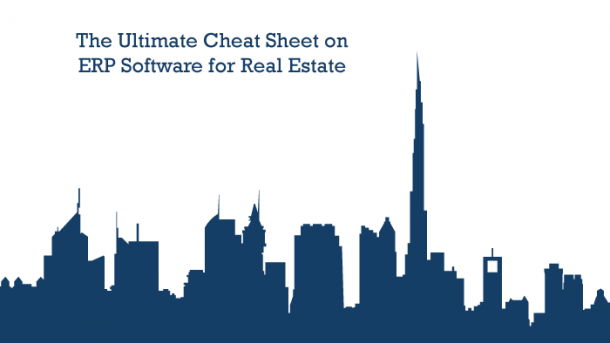Since there is no one-size-fits-all ERP software for real estate, selecting one is essential and expensive. Activities such as planning, financial reports, marketing, sales, and customer success management should be manageable with a customised ERP software. The standardization achieved through such software will result in increased efficiency, productivity, reliable data for forecasting, and boost the business as well. A comprehensive data analysis based on the reports generated accurately can give you an edge to make well-informed decisions. Thereby, have the advantage over competitors. To find one that suits your business will require a nosedive into the plethora of ERP systems from different vendors.
Factors to be considered while selecting an ERP software for real estate
While evaluating the options of an ERP software for real estate, several factors need to be pre-defined. Here are the few of the key components that it should ideally offer
Financial Accounting and Cost Analysis
Streamlining and automating the financial and accounting processes should save you several staff-hours every month. You should select that Real Estate ERP which covers recurring activities such as p accounting activities about invoices, rentals, bookkeeping, cash flow managing, bank reconciliation, and more. The ERP software should be capable of generating cost analysis and make calculations for setting budgets. In short, all the financial accounting and costing processes must be present in the ERP software for real estate
Assets Management Leasing and Inventory
Managing existing assets can be tasking job, and that’s where a little help would be great. Along with the vital details, adding pictures would give a better overview of the assets, especially with re-evaluations. Apart from that, the relevant documents including the legal ones about the leasing of the property or parts of it could be stored for quick reference or retrieval later.
Customer Service Management
Necessary for retaining customers and keeping them satisfied to drive robust sales. A single dashboard access to manage the information about the customers, vendors, and landlords should be super efficient for real estate managers. Integrating of E-Mailing and Mass Mailing into a CRM module can help in collaborating on a variety of projects including document as well as content management.
Sales
Tracking leads, following up on prospects, communicating, gain interest histories, and more becomes a lot easier. Here too, automating a lot of sales calculations, interest components, and payment plans can save staff-hours and result in more accurate as well as reliable sales figures.
Marketing
The marketing automation of campaign activities through emails, websites, classifieds, and digital mediums can serve to be crucial. Managing campaigns, customer data, online storefront, and collating social media responses can help to gather more knowledge about prospects’ interests and purchase history.
An ERP software for real estate is an expensive purchase, and you wouldn’t want it to be outdated in a matter of few years. It should be scalable and customizable to catch up with the growing demands and trends. After ensuring the presence of the above modules, it’s necessary to consider the following four crucial factors.
Cloud support
The cloud-based storage continues to be a hot buzzword across industries. By adopting cloud storage, you’ll move most of your trade-sensitive data outside your premises. Industry-leading storage security providers will take care of those worries. This also saves the cost of creating and maintaining any on-premise infrastructure. The cloud-based support ensures flexibility if you have to scale up in the future.
Mobile Access
Accessing the ERP software for real estate on mobile devices would provide the ease to staff. Especially if you have agents, who are on-the-move frequently. Let your team use their own devices to access the ERP software and IT team to provide integration support. You end up saving the cost of additional mobile hardware or bear the depreciation on them. Image the surge in efficiency and productivity as the staff starts using the cloud-based ERP solution on mobile devices.
Out of the Box Solution
Once the ERP vendor deploys the software, every solution should be carefully undertaken to meet your business goals. A well-Built ERP software for Real Estate is a dream but to maintain them with every module update without breaking things is also a challenge in itself. Over-built would make the system complex and leave a confusing pile of code.
Integrating other software
Making the ERP software for real estate harmoniously work with another third-party software such as email, reporting system, or digital media services can be a pain. Only add the necessary ones, especially those that are backed by good support. Else you’ll end up with a broken pipe post an update without any support.
Accurate reporting functions, comprehensive data analysis, and capability to automate multiple functions, especially the recurring ones, are the merits of an ERP software. That’s why one must determine what the business requires from an ERP software for real estate. You must factor its compliance with the software and systems used by your vendors and clients. Else you might end up with one seeking or providing support for an outdated software.

No Comments, Be The First!